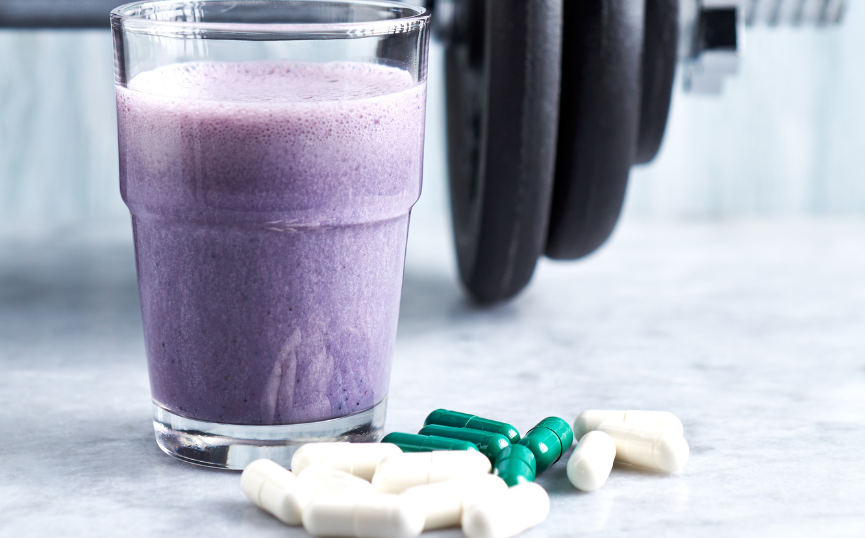All about creatine
Creatine is one of the most popular and best-researched training supplements, which has been popular since the 80s. But its positive effects can be exploited not only for those who exercise more seriously, it can also be useful support your health by incorporating creatine consumption into your everyday life.

What is creatine?
Creatine is an organic compound consisting of several amino acids. It is stored in the muscles as creatine phoshate.
The human body also produces creatine naturally, most of which is used by the muscles. Creatine is essential for muscle contraction and supports the body, not only in faster regeneration after tiring workouts, but also in faster recovery after possible illnesses.
The effect of creatine
It is not by chance that creatine is considered the most popular training support supplement. The main effect and unbroken popularity of creatine is manifested, among other things, in increasing muscle mass and increasing strength.
With its many positive effects, it supports your training to be even more effective and to get the most out of yourself!
Creatine prolongs maximal effort and accelerates regeneration between high-intensity activities, so it can benefit athletes who do high-intensity anaerobic or aerobic and interval training, but everyone can benefit from its positive effects. As it speeds up regeneration between sets, it is also useful in repetitive and high-intensity sports.
Creatine increases lean and total body mass and inhibits the formation of lactic acid in the muscle. It prevents the breakdown of muscles and plays an important role in the energy supply of cells – and especially muscle fibers. Few people know, but muscle fibers contain nearly 95% of the body’s creatine supply.

The primary energy source for muscle activity is ATP. All energy taken in from food will eventually be used as ATP. However, ATP is only present in very small amounts in muscle cells. As the load begins, ATP is used up in a short time, so we run out of energy and get tired.
Creatine is essential for ATP synthesis. ATP (adenosine-triphosphate) is a high-energy compound, the hyrolysis of which results in the release of energy. Creatine releases the short-term energy store of creatine phosphate, so the duration of maximum training intensity can be increased.
The appropriate creatine level therefore allows the muscles to have more ATP available for a longer period of time, so we can achieve a greater range of repetitions during training, thus increasing our performance.
Some studies show that creatine has a good effect on cognitive functions as well. Brain cells need a large amount of energy, and creatine - as mentioned above - plays an important role in energy production. Studies have shown that creatine supplementation can improve memory.
With its many positive benefits, creatine can be a useful supplement for you as well. It increases your strength and endurance, thus increasing your training performance and promoting the growth of strength and muscle mass. It speeds up regeneration, so the rest time between training sessions is reduced.

Taking creatine
Two types of methods are used to take creatine. One of them is the creatine cure, during which we start the administration at a higher dose in order to replenish the creatine stores. This is followed by a steady period, when we take smaller amounts of creatine in lower doses, like a cure, for a few weeks.
The other method is when we introduce a certain amount of creatine into the body continuosly, without charging periods. Although we can achieve the maximization of warehouses more slowly, we can expect a gradual increase.
Creatine should be consumed before meals containing carbohydrates for better absorption and utilization.




